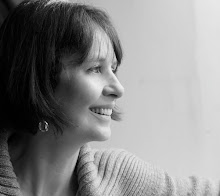It’s good to be back on the train – this time a local train, 8 hours south to the Gobi Desert – to a place called Saynshand. Our guide Daka is with us – so no gazing out the window today – she is a mine of information about Mongolia, its history, religion, and politics. She herself grew up under communist rule and was 12 years old when the government was overthrown by a mini-revolution in 1990.
She has described some of her life in that era – how everything was owned by the government – all the nomads’ livestock and all the land – and all food, education and healthcare was provided by the government. There was no unemployment, homelessness or differentiation in lifestyle – no street children or beggars – but there was some hunger and food rationing. She remembers the discipline of her school and the communist youth organisation she was in, how they had to conform in every little detail. Hair had to be worn in two plaits with white pompoms on each one, the exact uniform had to be worn, and even the white collar had to be taken off every few days, washed and sewn back on to avoid ridicule and punishment – being called a pig and humiliated in front of classmates. All the schoolwork had to be precisely written in blue ink and blotted with blotting paper in exactly the right way. Only very few would be chosen for higher education and these ended up in government positions. Daka believes the discipline and structure was good for society.
Some people look back to communist times with nostalgia saying there was no stress and food and education were better, but only last year people were killed in UB demonstrating against the corrupt election of a new communist party. So freedom remains, and each Mongolian now owns their livestock, vehicles etc. Each person, man, woman and child is also entitled to enclose 0.7ha of land as their own. Although the majority continue to live the nomadic lifestyle many are now doing this and place a yurt on this land for living in the summer, whilst continuing to have apartments in UB – a sort of holiday home. There is always a downside though – unemployment is very high, as is alcoholism – hence the beggars and street children. A lot of NGO’s are working in the country, and on our travels we have met probably more westerners who are working here than just tourists. Some gap year students teaching English, and a group counting the wild gobi sheep among others. An Australian lady, ‘Didi’, has been working for 16 years with street children and currently has 200 children in her orphanage, and the Christina Noble foundation doing similar work. Christina Noble is an Irish lady who was homeless in Dublin at a young age, had a terrible life, but had a dream that she was rescuing children in Ulan Bator – so she put it into action.
In terms of religion, 90% are buddhists though most monasteries were tragically destroyed and the monks killed by the communist government in the 1920’s and 30’s, leaving a spiritual vacuum and a lot of searching people. Approx 5% now are apparently christian with a lot of overseas input – to the disapproval of our guide!
It’s interesting to talk to our various contacts as they each have their own view and opinions. Zaya (our guesthouse host) says it’s the tourists that cause the street children. By giving food and money it encourages parents to push their children out into the streets….our canoeing guide – and the LP - however said quite plainly that they have children living in the pipes under the city (all hot water is centrally provided and therefore piped underground creating warmth), many of which will have alcoholic parents. It is undoubtedly a complex issue – very upsetting for us seeing it for the first time – even babies and toddlers out on the pavements with older siblings begging for money. We gave them bananas but I wanted to pick them up and take them somewhere safe, especially the bigger boys. The little ones don’t really know, but the big ones have that haunted longing look in their eyes – unbearable to see a human being so unloved. It certainly puts our few days without a loo or a decent cup of coffee into perspective.
Mongolia is a wonderful place and the people generous, kind and full of life. But their traditional way of living has been bruised and battered over the centuries and I can’t help thinking that it will be overtaken by change as the modern world encroaches more and more – maybe this would be good in some ways, but so much could be lost. I’m glad we’re seeing it now.

No comments:
Post a Comment